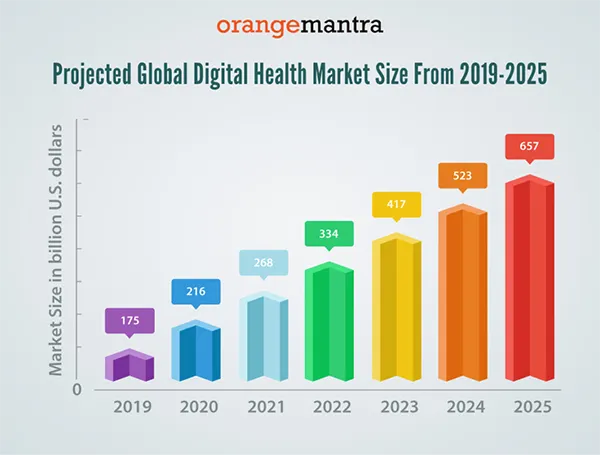There has been a full-blown debate around AI and automation over the last couple of years. Where the whole discussion revolves around the concept of technology replacing humans in the workplace.
But do you know it can also go to some great extent to enhance the well-being of human civilization, just like it has been doing for thousands of years?
The integration of advanced technology in healthcare has generated some innovative solutions, ranging from AI-powered screening tools to virtual reality in patient counseling. Also, learn about Oxygen Concentrators by reading this article.
This is why, in this read, I will walk you through literally everything you need to know about how technology is advancing well-being. Along with their benefits, challenges, and future outlook.
Let’s get into it!
The wellness sector significantly differs from the other industries due to its clearly defined goals and a wide array of unique features. For instance, the Persatuan Ahli Farmasi pafilhokseumawe.org is an Indonesian-based pharmacy organization that works with the vision of enhancing the competency and welfare of its members.
The advance of technology has intervened nearly everywhere in the wellness sphere. This includes advanced medical treatment, screening process, post-treatment recuperation, marketing, and lifestyle maintenance.
Let’s now explore how technology is impacting well-being:

The seamless integration of technology in wellness initiatives offers a wealth of opportunities to enhance overall well-being. Here, take a look at some of the striking benefits technology in the wellness sector:
The latest smartphone and wearable technology provide convenient access to a wide range of wellness resources such as fitness tracking, and nutrition guidance along with some fine mental health tips. Which was never this easy to access a couple of years back.
Do You Know?
According to Precedence Research, the global market for information systems stood at $287.8 billion in 2022, and it is further estimated to reach $528.5 billion by 2030.
Technology enables wellness organizations to quickly recognize individual needs and preferences by digging through extensive data analytics, user behavior, and other health metrics.
This enables them to generate some personalized recommendations and interventions, enhancing the overall effectiveness of the wellness program.
Another major benefit of technology is easy access to the virtual world, which again promotes a wide array of fitness classes, telehealth services, and other support groups.
The flexibility of these programs allows users to access these resources from anywhere, at any time, while maintaining their work-life balance.
Technological advancements have enhanced the ability to collect and analyze data. By actively tracking useful metrics like stress level, heartbeat, and sleep pattern, It is easy for organizations to provide a data-driven approach and measure its outcome later on.
This over-connectivity of the health system consists of much of our personal information, making it a major target for online intruders. This increases the risk of privacy, security, and ethical concerns.
Additionally, technology has increased their dependency on the wellness industry. For instance, many wellness centers rely on online booking platforms, and if these platforms ever face any technical glitches, it can disrupt the whole business management.
The rising market of the next generation innovation tools brings some of the major forthcoming benefits in the wellness sector. This includes 3D visualization tools, augmented reality, and artificial intelligence, which enhances the overall screening process with some pretty accurate medical treatment.
The future of the well-being industry holds some latest at-home testing kits, which can provide home-based healthcare solutions. These kits are designed to recognize the body’s nutritious deficiency and identify cholesterol levels, valuing convenience, speed, and frequency.
Additionally, the paradigm shift toward emotional fitness will continue to witness some significant advancements. The new era will explore biomonitoring tools, smart fitness equipment, and wearable devices that will further hyper-awareness among consumers.
As the technology continues to evolve, it has evaluated nearly every element of the human well-being. The pace of these technological advancements empowers us to thrive both physically and mentally.
Integrating the technical solution in the wellness sector can also greatly influence individual privacy and security concerns. This is why industries need to balance safeguarding data, privacy, and building trust among the users.
